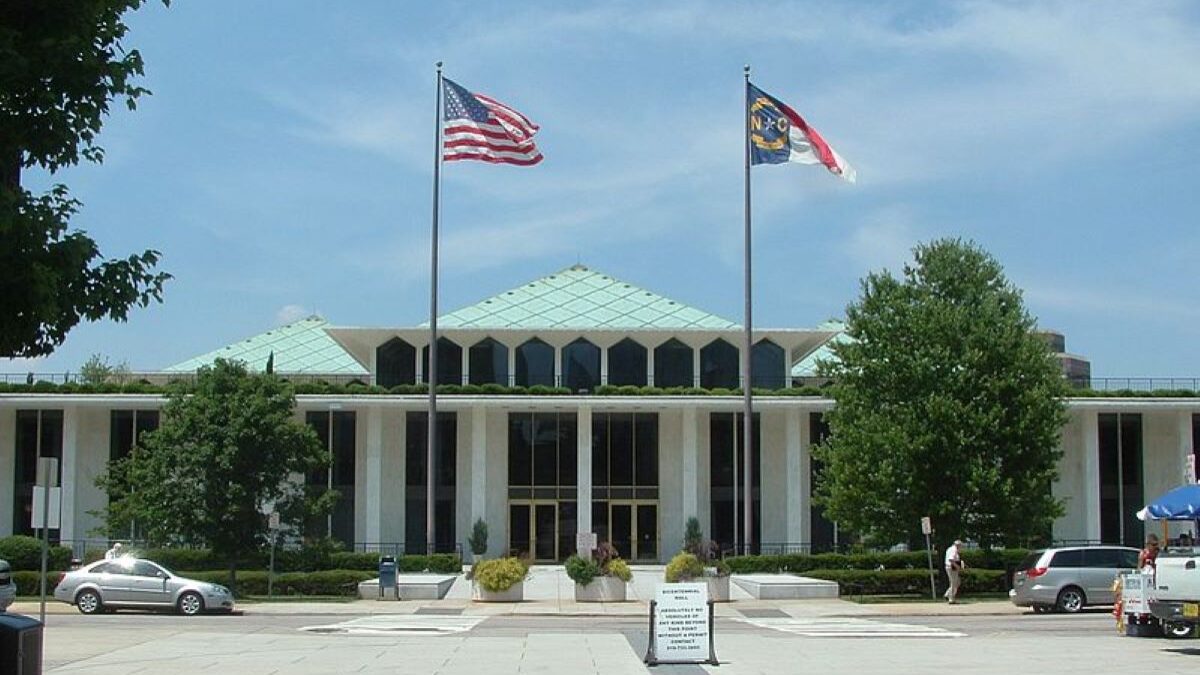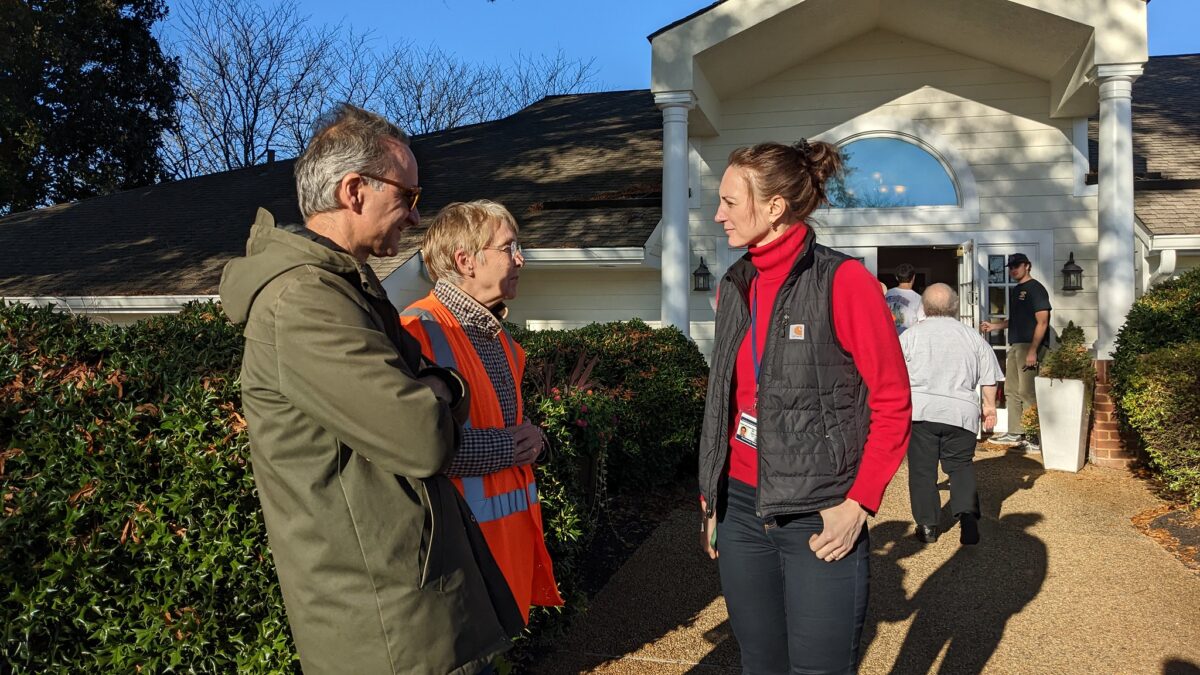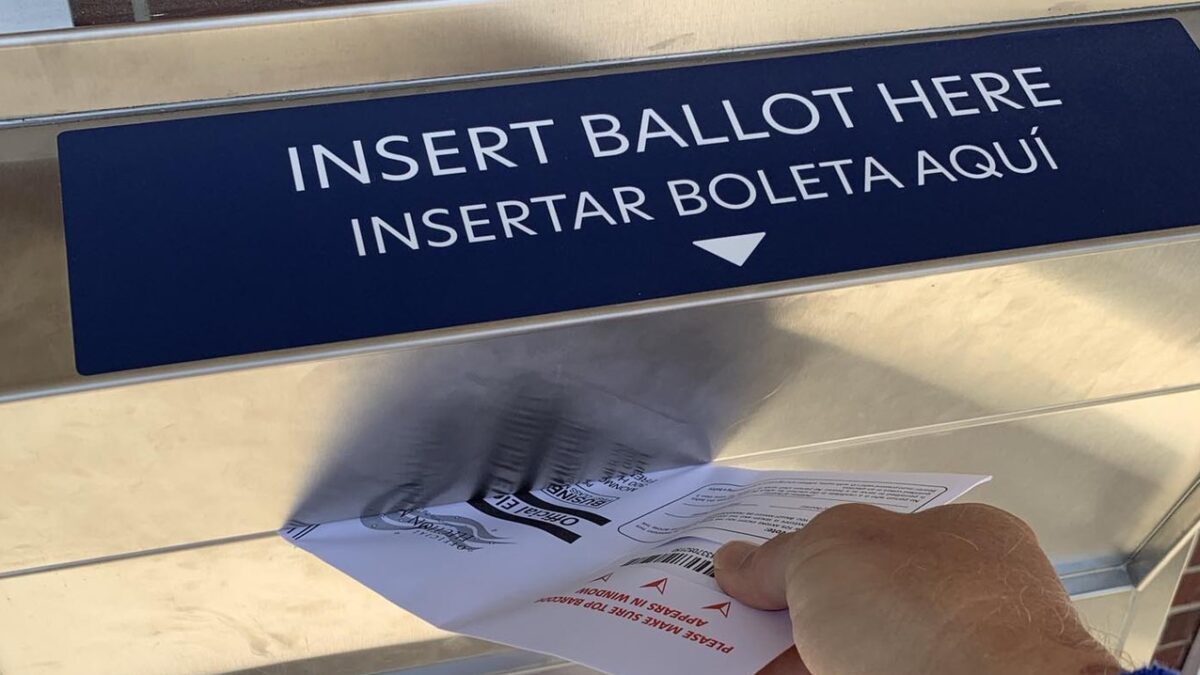Election integrity leaders are calling on North Carolina’s legislative leadership to pass a constitutional amendment proposal increasing protections against alien voting before adjourning as soon as next week.
“North Carolinians want consistency, transparency, reliability, and accuracy in election administration,” Jim Womack, president of the North Carolina Election Integrity Team, told The Federalist.
Introduced last year and carried over into the 2024 legislative session, SB 630 seeks to change language in the North Carolina State Constitution to specify that “only” U.S. citizens who are 18 years old and meet existing eligibility requirements may vote in elections. A companion bill (HB 1074) was introduced in the House last month.
Constitutional amendment proposals require support from three-fifths of House and Senate legislators before they can be sent to voters for approval, according to the Tarheel State’s founding document.
An amended version of SB 630 passed by the Senate Redistricting and Elections Committee on Thursday added two additional proposals to the bill, which would require voter ID for all forms of voting and cap the state income tax at 5 percent. The former provision would strengthen existing state constitutional requirements mandating electors present ID when voting in person by expanding that requirement to include mail-in voting. Laws requiring voter ID in North Carolina elections were passed in 2018 and 2019 and took effect last year following years-long court challenges.
SB 630 must now pass the Rules and Operations of the Senate Committee before going to the full floor for a vote. Womack said a committee co-chair informed him the bill “should” be considered by the committee on Monday.
The Senate is expected to adjourn at the end of next week, according to reported comments made by Senate President Pro Tempore Phil Berger, a Republican.
Womack contended that voters’ passage of SB 630’s citizenship amendment “will remove all present ambiguity about voting eligibility in the North Carolina Constitution,” which he noted “does not explicitly tie citizenship to voting eligibility.”
North Carolinians’ “trust in election outcomes is proportional to their perception of integrity of [quality] election administration — integrity that is measurably enhanced by clearly requiring U.S. citizenship for voting eligibility,” Womack said.
Election Transparency Initiative (ETI) Chair Ken Cuccinelli also noted the importance of SB 630 in a statement issued last week, saying, “Only U.S. citizens should decide the outcome of U.S. elections—one person, one vote counted fairly and equally.”
The former Virginia attorney general further called on the GOP-controlled General Assembly to pass HB 770 before the end of the 2024 session. That bill, according to ETI, “would require Cast Vote Records (CVRs) from tabulation machines be made publicly accessible, as they are in most states.” HB 770 passed the House last year and is awaiting action from the Senate Rules Committee.
“Without delay, we urge the General Assembly to pass Senate Bill 630 and House Bill 770 and to keep delivering the transparency and trust every voter deserves,” Cuccinelli said.
AMAC Action President Bob Carlstrom echoed Womack and Cuccinelli’s remarks, telling The Federalist his organization’s members “have made it clear that only eligible US citizens should be able to vote in our elections” and “recognize that this is a crucial aspect of election integrity that will contribute to the credibility of our elections.”
In addition to co-sponsoring SB 630’s companion bill, House Speaker Tim Moore, a Republican, has previously voiced support for amending the state constitution to ensure only U.S. citizens are voting in elections. Senate leader Berger has also reportedly expressed support for the amendment.
When pressed on whether he will use his position as president pro tempore to ensure the Senate passes SB 630 before he adjourns the body next week, Berger spokesman Randy Brechbiel told The Federalist the upper chamber “intends to vote on Senate Bill 630 next week.”
States Take Action
Efforts to prevent aliens from influencing American elections come amid Joe Biden’s manufactured invasion at the U.S.-Mexico border and increasing concerns that foreign nationals could exploit existing federal loopholes to interfere in America’s electoral system.
Despite attempts by their media allies to downplay such worries, Democrats have openly pushed for granting foreign nationals the ability to vote in U.S. elections. From blue cities permitting aliens to vote in their elections to elected leftists fighting efforts to repeal such policies, Democrats have made it abundantly clear where they stand on the problem.
To combat the issue, grassroots organizations such as Americans for Citizen Voting are working to amend state constitutions throughout the country to include citizen-only voting language. As my colleague Matt Kittle previously reported, the group has experienced success in getting lawmakers in Wisconsin, Iowa, Kentucky, and Idaho to pass citizen-only voting amendments that “will go before voters this November.”
A similar amendment will also appear on South Carolina’s November ballot, according to Just the News. Louisiana and Ohio voters passed such proposals in 2022.









